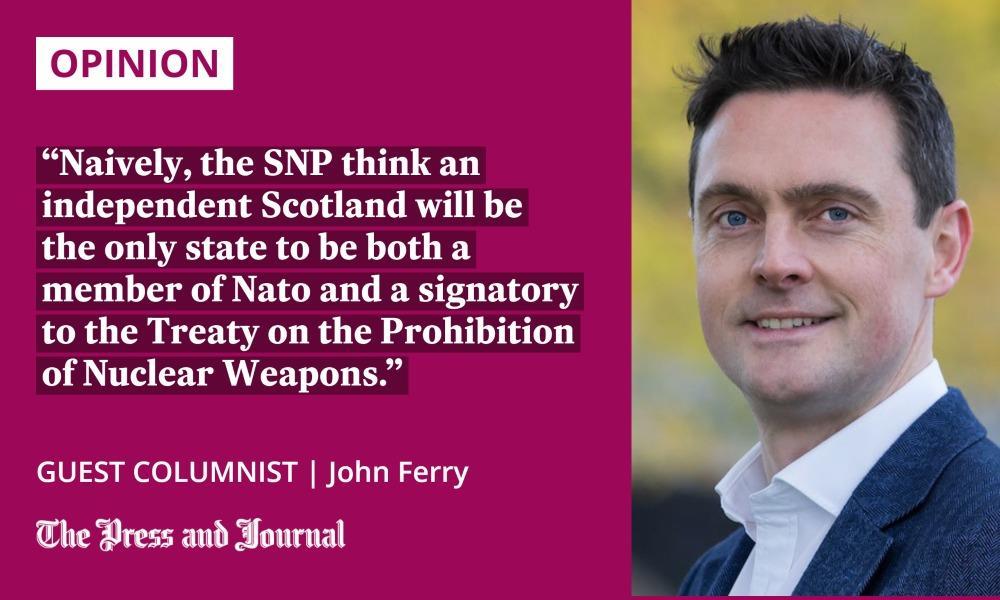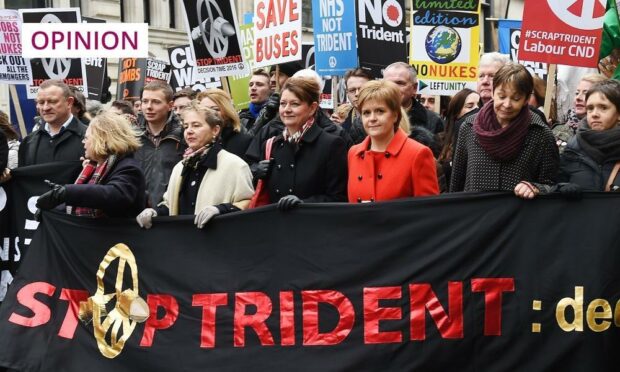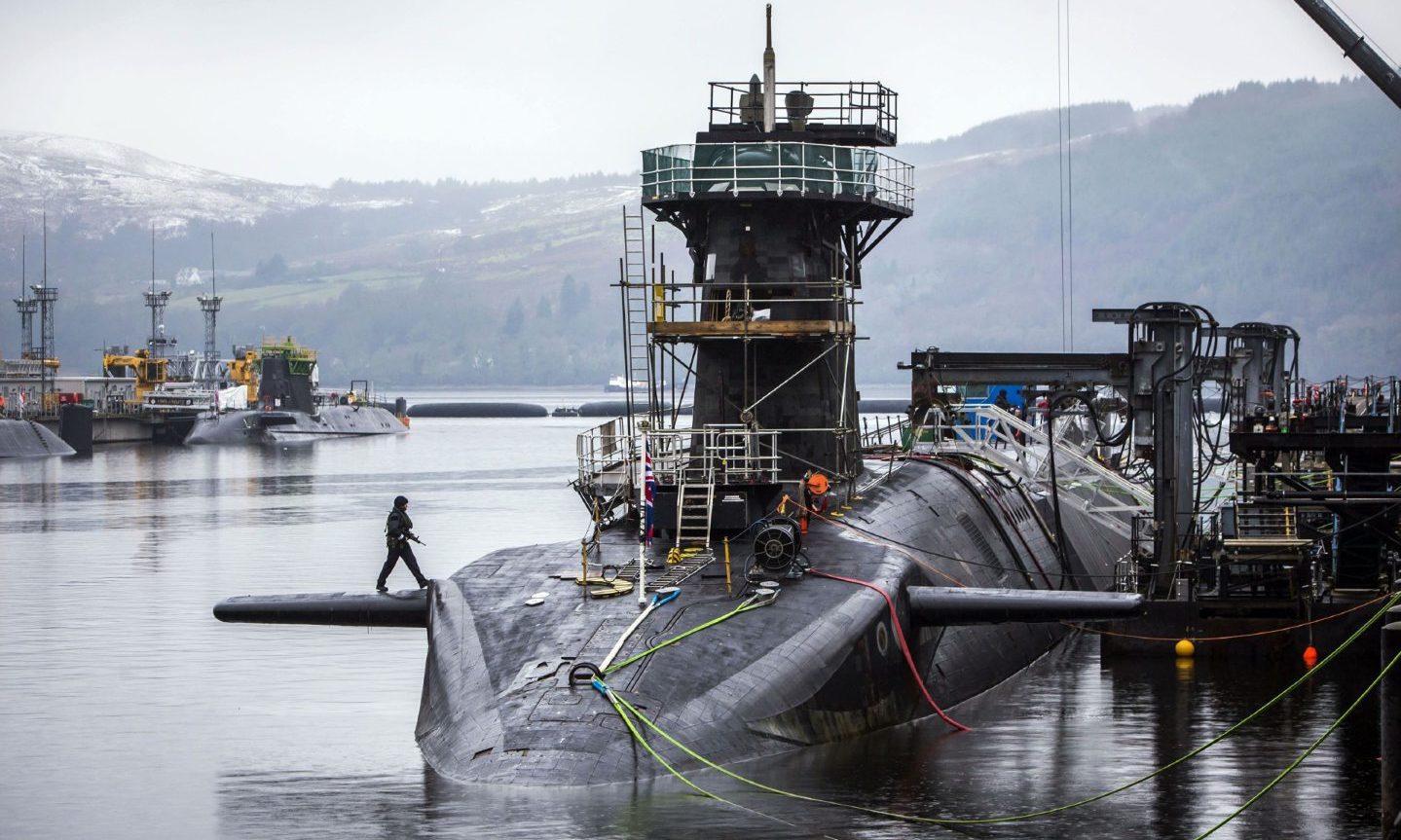The war in Ukraine has cut a swathe through decades of Western foreign policy shibboleths.
Who, just a few months ago, could have guessed that Germany would ditch its long-held aversion to militarism by massively ramping up its defence budget to over 2% of economic output, bringing it into line with Nato’s official spending request?
And look at Switzerland. The Swiss have a long tradition of self-imposed neutrality when it comes to outside conflicts, but have joined other democracies in imposing sanctions on Russia.

Governments across the world are rethinking foreign and defence policy in response to Vladimir Putin’s aggression. They are also rethinking the value of Nato and the strength democracies have when they come together in the face of authoritarian brutality.
Here in Scotland, the SNP is putting a lot of effort into trying to be part of this club. They want leaders in Washington DC and across Europe to feel that a Scottish exit from the UK is no threat to Western collective security, and that, indeed, it could even enhance it.
Turning the pro-Nato rhetoric up a notch
The SNP’s move away from the radical fringes on defence started in 2012, when it dropped its long-standing opposition to an independent Scotland joining Nato. In recent years, the pro-Nato rhetoric has been turned up a notch, as the party has distanced itself from the anti-Western sentiments of the hard left.
The key message was made clear in the headline of an article published in Foreign Policy magazine in March 2021. Written by SNP MPs Stewart McDonald and Alyn Smith, it was headlined: An Independent Scotland Would Bring No Surprises for Allies.
Continuity. Stability. These are the watchwords the SNP hope Nato members will use in any conversations about the hypothetical break-up of Britain.
In some ways, it is refreshing to see Scotland’s current party of government present a more mature take on Nato than it has in the past.
Scotland leaving the UK would, by any measure, be a blow to Western collective security
But, the SNP’s schmoozing of the Alliance should be taken with a large pinch of salt. Nato countries should see it for what it is – another cynical attempt by the SNP to move Scotland closer to secession while ignoring the collateral damage the policy would create.
Could Scotland be a Nato member while opposing nuclear weapons?
Scotland leaving the UK would, by any measure, be a blow to Western collective security. A recent paper from the Royal United Services Institute (called Scotland: A Touchstone for Security in the High North?) warned that secession could create a security gap in the North Atlantic and High North, and that Nato’s adversaries “will do everything they can to foster and exploit any emerging gaps and divisions between Scotland and the [remaining] UK over air and maritime defence and security”.
Secession would obviously put a big question mark over Britain’s Clyde-based nuclear deterrent. More broadly, the SNP favour unilateral nuclear disarmament by Western countries and, to that end, would sign an independent Scotland up to the Treaty on the Prohibition of Nuclear Weapons (TPNW).
Nato views this as dangerous. Speaking on TPNW in 2020, Nato head Jens Stoltenberg said: “Simply giving up our deterrent without any guarantees that others will do the same is a dangerous option. Because a world where Russia, China, North Korea and others have nuclear weapons, but Nato does not, is not a safer world.”
No Nato countries have ratified TPNW. Naively, the SNP think an independent Scotland will be the only state to be both a member of Nato and a signatory to TPNW.
You cannot be liberated from a liberal democracy
More fundamental still is the dangerous precedent Scottish secession would set. The post-war liberal consensus is grounded in the idea that there is no moral case and no pragmatic need for secession in the context of free societies with democratic governments conferring equal rights on their citizens. You cannot be liberated from a liberal democracy.
Scotland exiting the UK would signal that this period has come to an end, and that the ideal of liberal democracy itself has failed. It would be a gift to autocrats like Putin.
Russia and China would view Scottish secession as the end of one era and the start of another – an era in which they have been dealt a stronger hand
That, as much as the practical matter of a predominant Nato member suddenly having to scurry around to find a new home for its nuclear submarines, would be a significant blow to Western self-assurance.
Anti-democratic states like Russia and China would view Scottish secession as the end of one era and the start of another – an era in which they have been dealt a stronger hand. That is why we should be deeply cynical of the SNP’s new love for Nato.
John Ferry is a regular commentator on Scottish politics and economics, a contributor to think tank These Islands, and finance spokesperson for the Scottish Liberal Democrats



Conversation